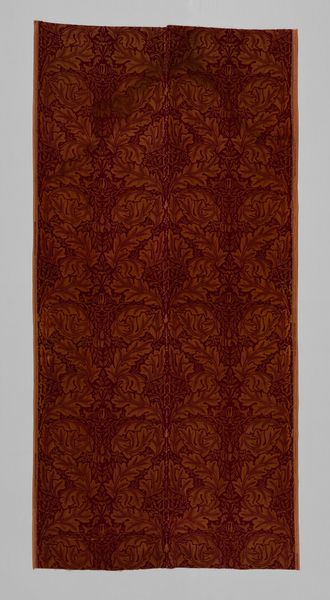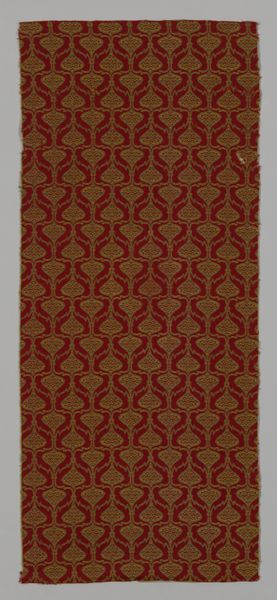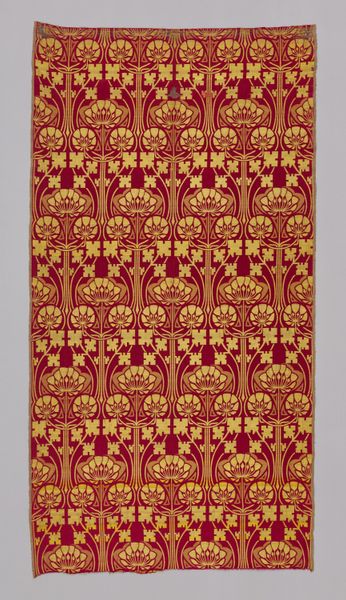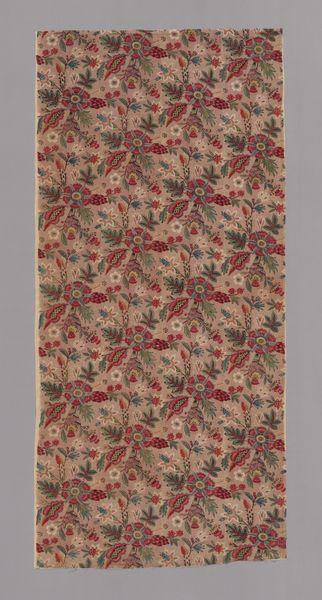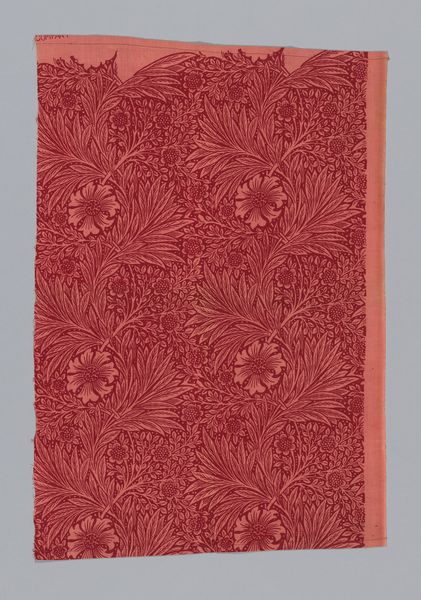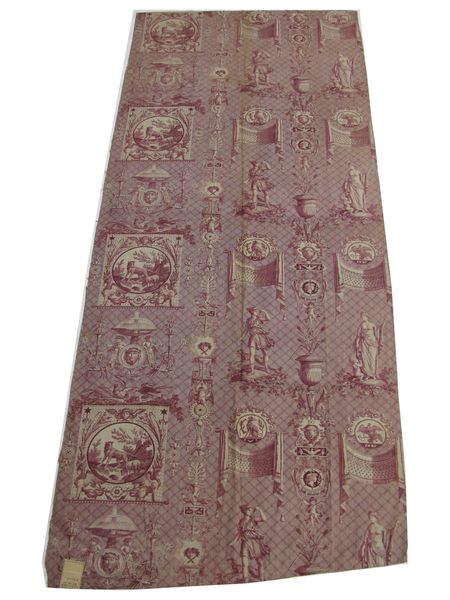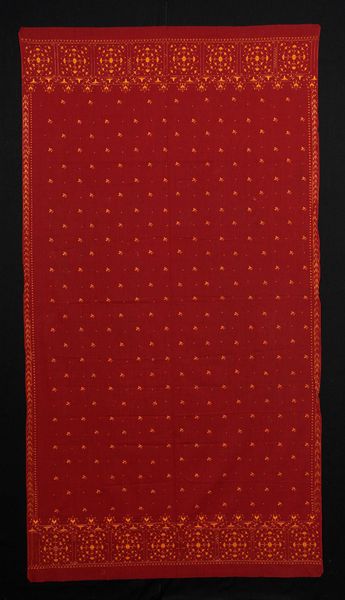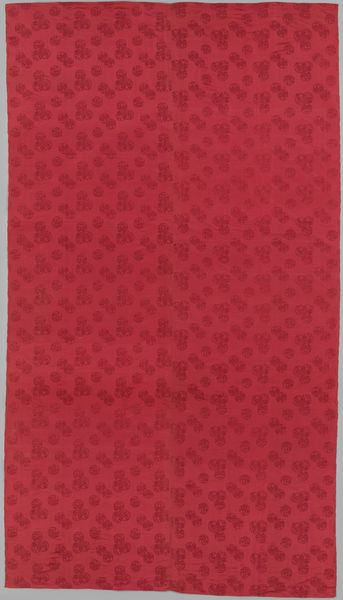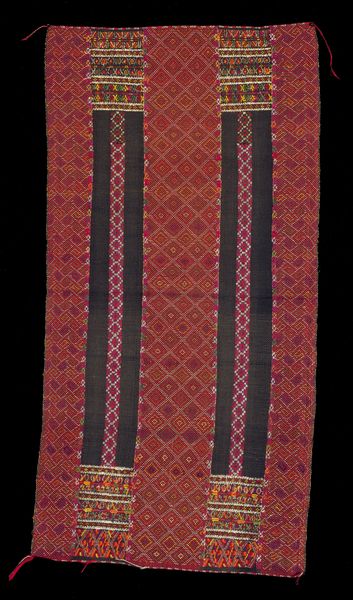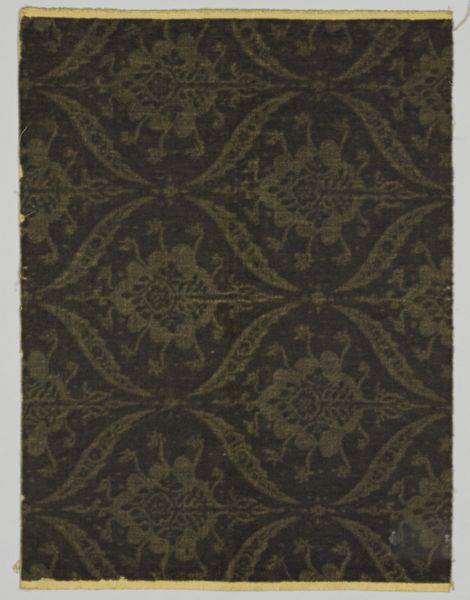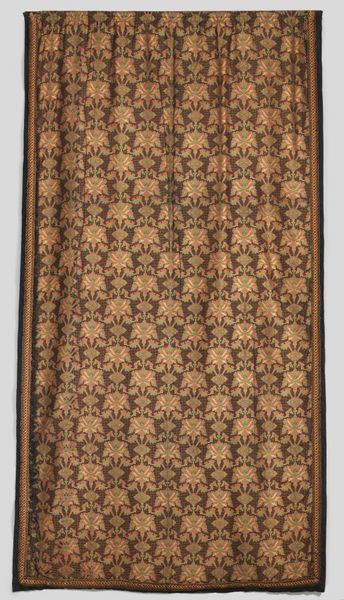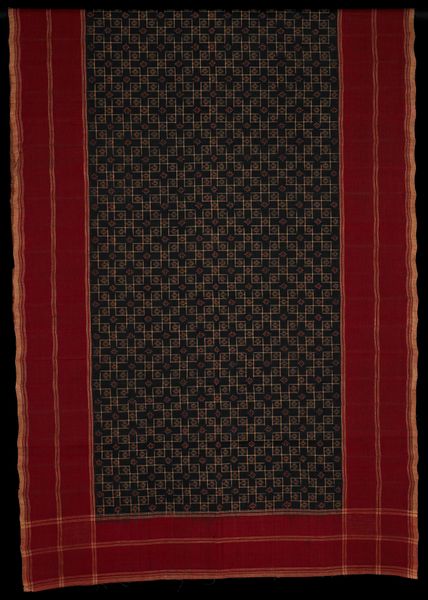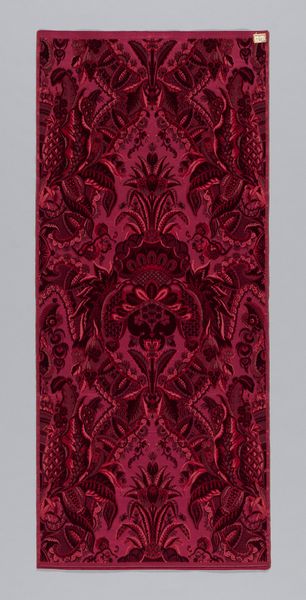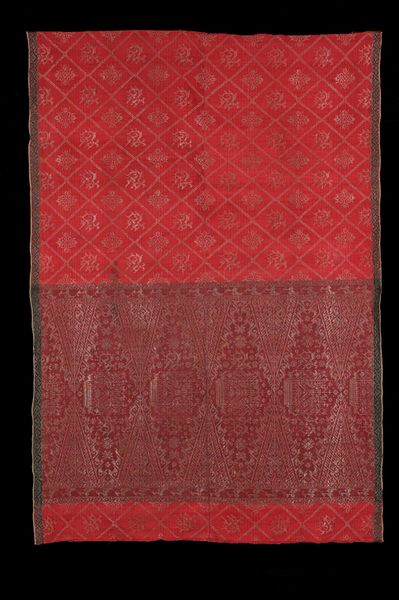
fibre-art, print, weaving, textile
#
fibre-art
#
16_19th-century
# print
#
arts-&-crafts-movement
#
pattern
#
weaving
#
textile
#
flower
#
textile design
Dimensions: 234.5 × 136.5 cm (92 3/8 × 49 3/4 in.) Repeat: 30.5 × 20.6 cm (12 × 8 1/2 in.)
Copyright: Public Domain
This is 'Wey', a woolen textile created by William Morris, a man deeply affected by the social and artistic currents of his time. Morris, living in Victorian England, responded to the industrial revolution with a romantic vision of a handcrafted past. 'Wey', with its densely interwoven floral patterns, speaks to Morris’s desire to return to pre-industrial modes of production and honor the skill of the artisan. There's a tension here; he was, in effect, designing for the upper classes, even as he harbored socialist ideals. The patterns, though inspired by nature, were also about class and taste. Morris once said, "Have nothing in your houses that you do not know to be useful or believe to be beautiful." As you look at ‘Wey’, consider how the beauty of this textile is intertwined with questions of labor, class, and the very definition of ‘useful’ in a rapidly changing world. It is a reminder of the complex ways in which beauty, politics, and identity are woven together.
Comments
No comments
Be the first to comment and join the conversation on the ultimate creative platform.
